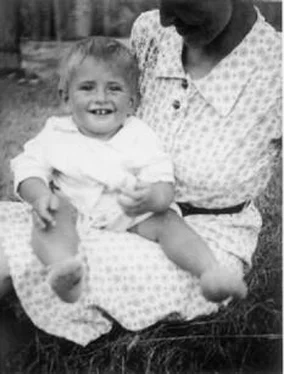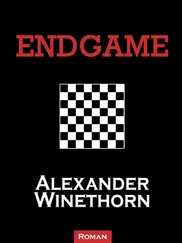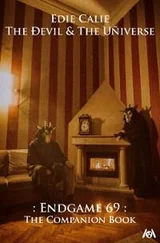The Polgars had offered Bobby friendship and a respite, but it was now clear that the press was aware of his specific whereabouts. He departed from Nagymaros immediately, returned to Budapest, packed his bags, and left the Gellért in short order. Accompanied by his bodyguards, who were now doubling as porters, he checked into the Hotel Rege, at the foot of the Buda Hills, across the street from Benko’s apartment and about fifteen minutes by bus from the city’s center. Then, taking his friend’s advice, he permanently dismissed his bodyguards as being too obvious and therefore potentially dangerous.

The Budapest that Bobby roamed through in 1993 was a rapidly changing city. No longer under the thumb of the Soviets, the city (and all of Hungary) had rid itself of the Iron Curtain in 1989 and had opened its border to Austria. Many businesses had been privatized, and only a small percentage were still connected to Russia. Among the people, there was a sense of vibrancy and freedom. It could be felt just walking down the Váci Utca, the city’s principal mall street, with shops of all kinds selling wares. People were smiling, and staying out late enjoying themselves.
When Bobby determined, or at least believed, that he was no longer being followed or pursued, he began to freely wander the city, taking trams and buses to various destinations. Though many people undoubtedly recognized him, they almost never approached. Indeed, he always felt he was an alien and never a true resident of Budapest. Even after living there for years, he referred to himself as a “tourist.”
He continued to visit the Polgars in Budapest, and on days that he wasn’t playing chess or Ping-Pong with them, he’d be at the home of eighty-two-year-old Andrei Lilienthal and his wife, Olga, who was thirty years younger. The Lilienthals were genial hosts and they adored Bobby, and he greatly respected Lilienthal, a man who had once defeated former World Champion Mikhail Botvinnik. The old grandmaster had many tales to tell, and listening to him was like reading a book of chess history.
Although Olga was almost the same age as Bobby, she treated him in a motherly way—for example, by preparing the foods she knew he preferred. He spoke to Olga in Russian, and she’d later tell people that his command of the language was “pretty good.” All throughout the years that he lived in Budapest, Bobby studied Russian almost every day, and he used Olga to correct his grammar and pronunciation. In his library, he collected various Russian-English dictionaries and, also, books on Russian grammar and conversation. Lilienthal and Bobby talked in German.
When Bobby aired his views regarding the Jews, Lilienthal stopped him: “Bobby,” he said, “did you know that I, in fact, am a Jew?” Bobby smiled and replied, “You are a good man, a good person, so you are not a Jew.” It was becoming apparent that, although Bobby’s rhetoric was clearly anti-Semitic, he tended to use the word “Jew” as a general pejorative. Anyone—whether Jewish or not—who was “bad,” in Bobby’s opinion, was a Jew. Anyone who was “good”—such as Lilienthal—whether Jewish or not, was not a Jew. “I reserve the right to generalize,” Bobby wrote about his penchant for stereotyping.
After dinner almost every night, when he was at the Lilienthals’ home, Bobby would watch a wide range of Russian television broadcasting—concerts, news, films—which he preferred to the Hungarian and American programming that was available. Such viewing also helped increase his understanding of the language. And then Bobby and Lilienthal would repair to the study and analyze games far into the night. They never played.
Since the Lilienthals were supportive of Bobby, he reciprocated with gifts: a television satellite dish, a vacuum cleaner, leather goods that he’d buy on trips to Vienna, and special gifts for birthdays and other holidays. His relationship with the Lilienthals wasn’t unlike the one he’d had with Jack and Ethel Collins: Together, the three created a family atmosphere that was consistently supportive, involved chess, and hopefully would last for years.
After four years of interacting affectionately with the Lilienthals, however, two incidents severed the bond. Andrei had surreptitiously taken a photograph of Bobby at a New Year’s Eve dinner party and sent it to Shakhmatny Bulletin , the Russian chess magazine. They published the picture and as an honorarium sent Lilienthal $200. Bobby was furious when he saw the issue and became more incensed when he learned that Lilienthal had been paid for the photo.
Bobby continually talked about the royalties he was owed for the Russian-language edition of My 60 Memorable Games , and Lilienthal sent a letter to Kirsan Ilyumzhinov, the current president of FIDE, and signed Bobby’s name to it (without his knowledge), asking for a meeting. At one of his press conferences in Yugoslavia, Bobby had said, just to open discussions about how much was owed him, that the Russian publishers would have to pay $100,000, but that it was possible he really was owed “millions.” Ilyumzhinov was also the president of the Russian Republic of Kalmykia, on the northwest shores of the Caspian Sea. An extraordinarily wealthy man with a passion for chess, he wanted to pay Bobby some of the royalties that were due him. He relayed a message to Lilienthal that he’d deliver the $100,000 in American cash to Bobby personally.
A meeting was arranged—a dinner at the Lilienthals’. It had been eighteen years since Bobby had broken off relations with FIDE, when he forfeited his match with Karpov, and therefore Bobby was not prone to be friendly, although Ilyumzhinov had had nothing to do with the organization at the time of the Karpov debacle. Speaking excellent English, Ilyumzhinov greeted Bobby and handed him a suitcase of money. Bobby sat there and resolutely counted every dollar. The dinner that followed was lively and cordial: Bobby showed Ilyumzhinov how Fischer Random was played, and he plied the president with questions about Russian politics. Ilyumzhinov recalled: “I was struck by how Fischer was up on everything that was happening in our country. He named our politicians and members of the government, and asked who I thought would win the elections.”
Offers of possible reconciliation between Bobby and FIDE were made that evening, and Ilyumzhinov suggested that Bobby move to Kalmykia, where he’d be given free land and a new house could be built to his specifications. The federation president gave Bobby a deed for more than an acre of land in Elista, his capital city. Bobby thanked the president and asked about Kalmykia’s medical care program but did not accept Ilyumzhinov’s offer to live in Elista. Ilyumzhinov also offered to put up millions for another Fischer-Spassky match, but all Bobby would say was “I am only interested in Fischer Random.” Somehow, in the course of the conversation, Bobby learned that the letter that had been sent to Ilyumzhinov had his forged name on it. The evening was getting late, and Ilyumzhinov began to make motions to go, but before doing so, he asked Bobby to pose with him for a photograph. “No,” said Bobby ungraciously, silently fuming over what he regarded as two betrayals by Lilienthal (the photo and the forgery), “the $100,000 that you gave me doesn’t include a photograph.” Ilyumzhinov, the spurned suitor, left in a huff, and Bobby, the resentful friend, exited just behind him—with the money. Bobby always held that it was easier to forgive an enemy than a friend. He never saw the Lilienthals again.
When Bobby finally started writing a book on how he’d been cheated by various publishers, he dedicated it to: “The old Jewish scoundrel Andrei Lilienthal whose forgery of my name on his letter to FIDE was the straw that broke the camel’s back [to write an anti-Semitic tract].”
Читать дальше



![Антон Текшин - EndGame [СИ]](/books/394477/anton-tekshin-endgame-si-thumb.webp)









